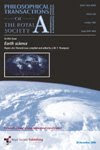AMSTERDAM – The head of the U.N. scientific body on climate change defended Friday the work of the thousands of scientists who contribute to its reports, even as he welcomed a review of procedures that produced errors undermining the panel's public credibility.
The chairman of the Intergovernmental Panel on Climate Change, Rajendra Pachauri, cautioned an independent scientific committee reviewing the IPCC's work not to undermine scientists' motivation for contributing to reports on global warming.
Recently its reports have been dismissed (undermined) by climate skeptics who attribute global warming to natural cycles. The skeptics were bolstered by a series of errors in the IPCC's 2007 report.
Pachauri told the committee's first review meeting that the panel's conclusions are valid, even in areas where mistakes were discovered.
Pointing to the most glaring error, a claim that the world's glaciers will melt by 2035, Pachauri said glaciers are indeed melting, though not that fast. Nonetheless, glacial melt accounts for 28 percent of sea level rise, and the panel's assessment on glaciers contains "a lot of facts which we can ignore at our peril."
Pachauri said the panel is comprised of volunteer scientists contributing several years of their own time and who disband after issuing their report. The panel has no mechanism for responding to criticism once the reports are issued, other than the small secretariat.
"We need to develop an ability and a capacity to communicate better with the outside world," he told the 15 top scientists from around the world summoned to sit on the review committee..
He said the panel's procedures already are robust, but he welcomed any suggestion that would improve accuracy.
The review is expected to take several weeks before it issues recommendations on how to tighten the IPCC procedures.
Its up to the individual whom he chooses to believe in these issues.
He can choose between either the largest body of the worlds best and most recognised scientists and experts of all times brought together to study this most important or a relatively small number of specialist sceptics and a large number of lay persons with little or no recognised scientific or engineering training in such vast and complex fields as to the probable outcomes.
I know which group I would choose to place my faith.
"He said the panel's procedures already are robust, but he welcomed any suggestion that would improve accuracy. The review is expected to take several weeks before it issues recommendations on how to tighten the IPCC procedures."
- UN science chief defends work, welcomes review - Yahoo! News (afficher sur Google Sidewiki)







0 commentaires:
Post a Comment